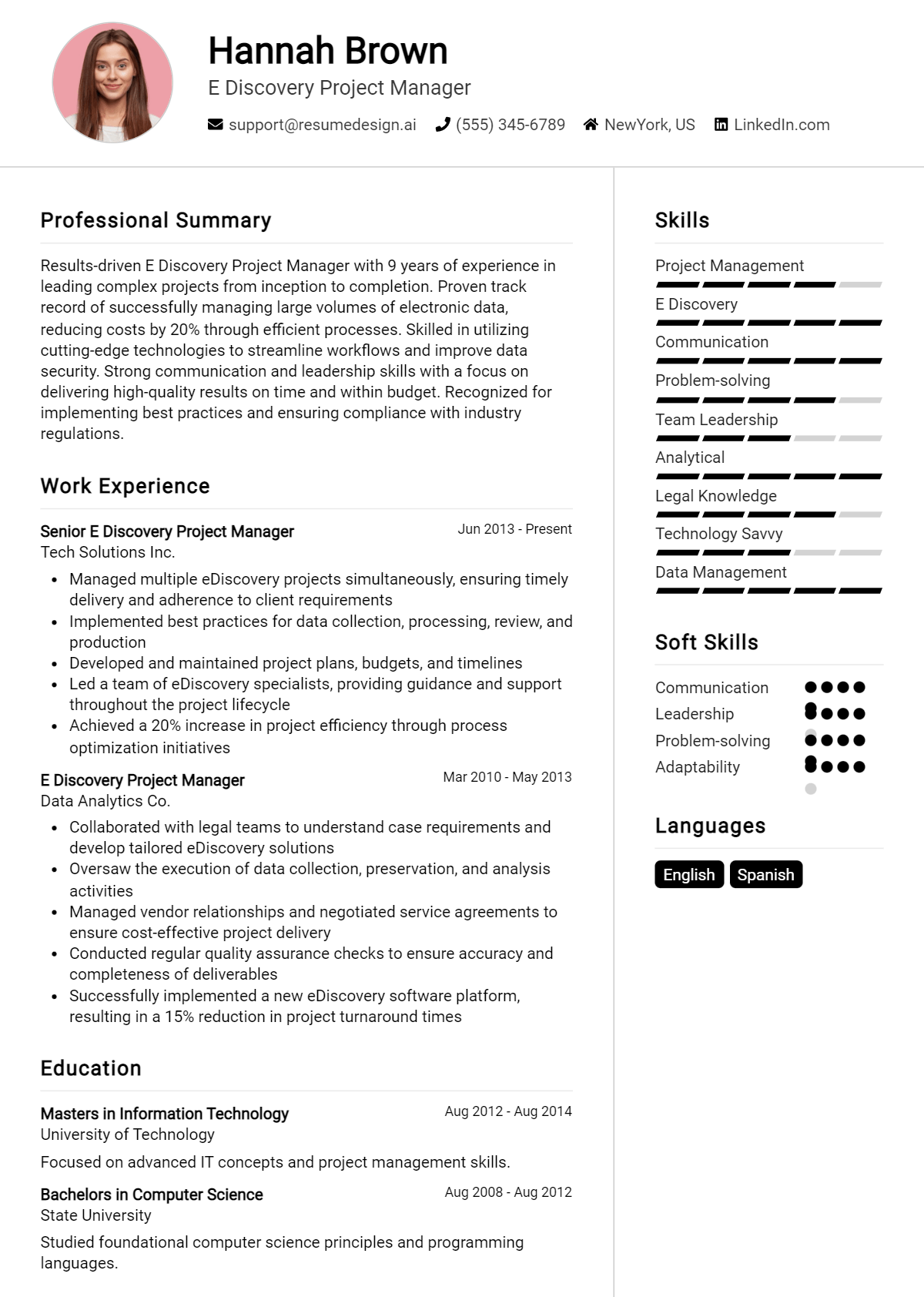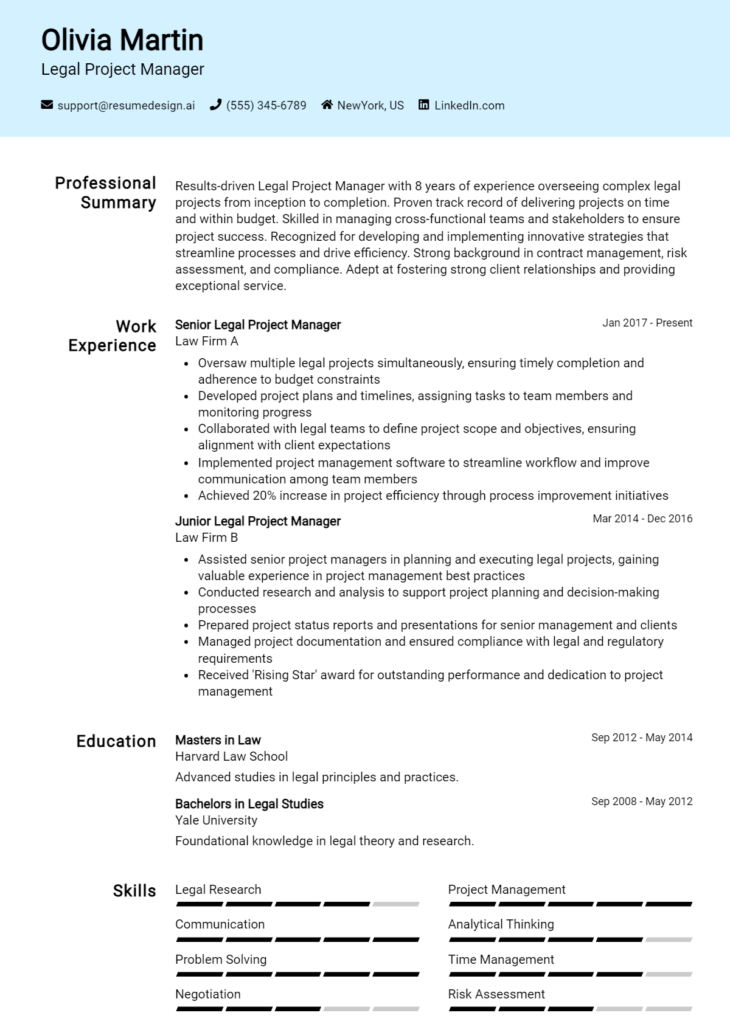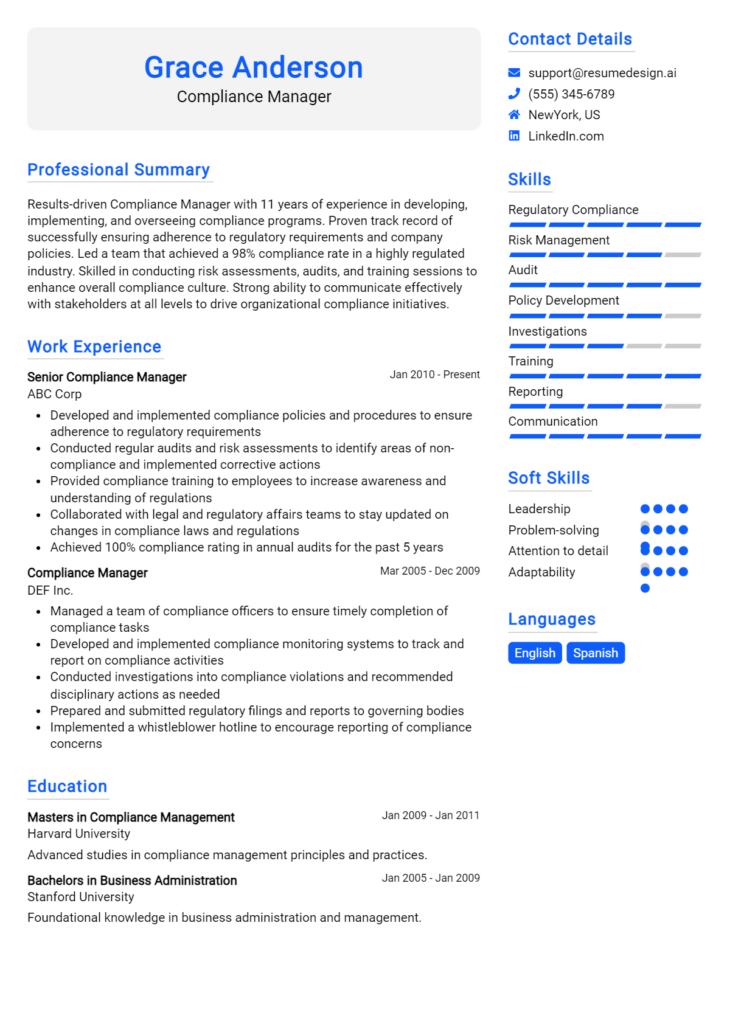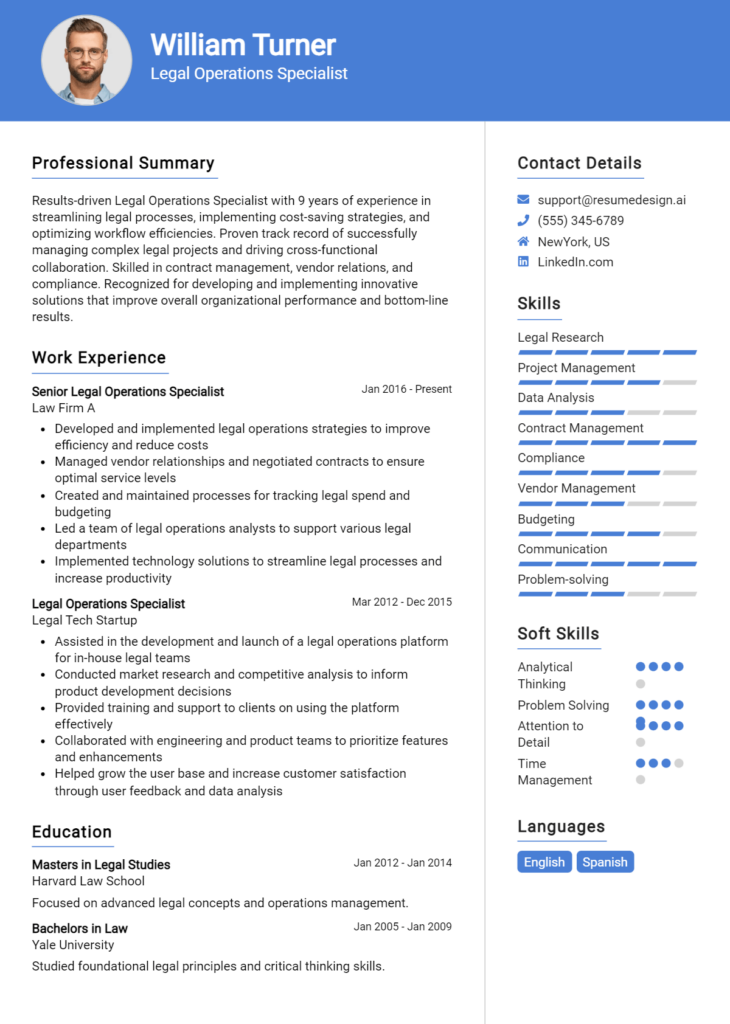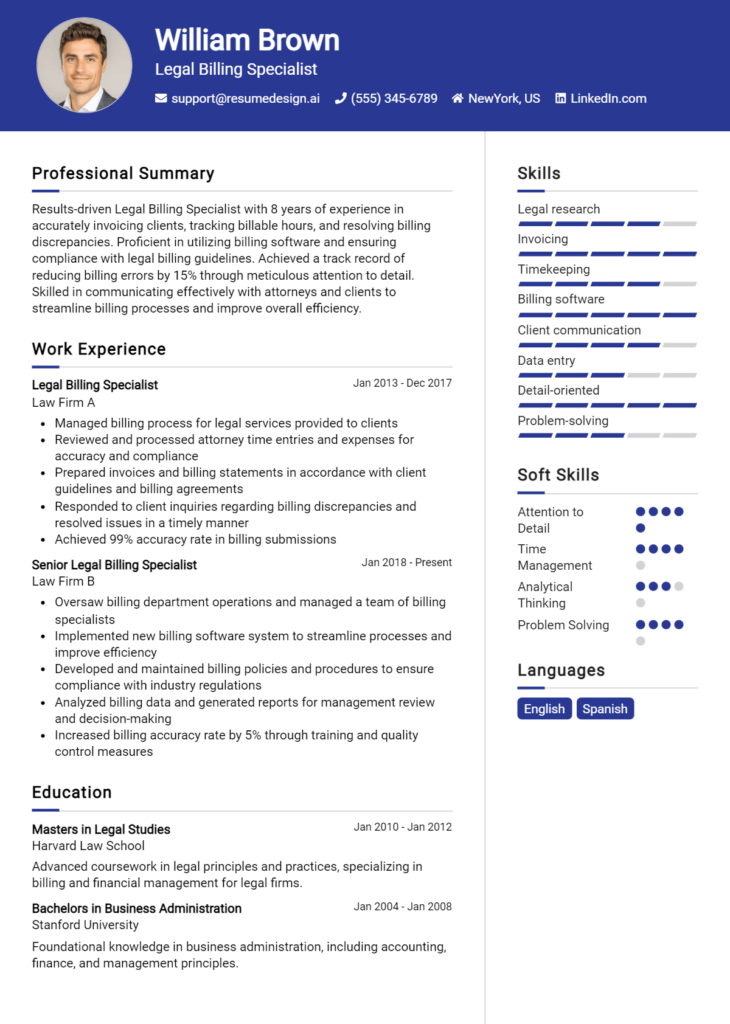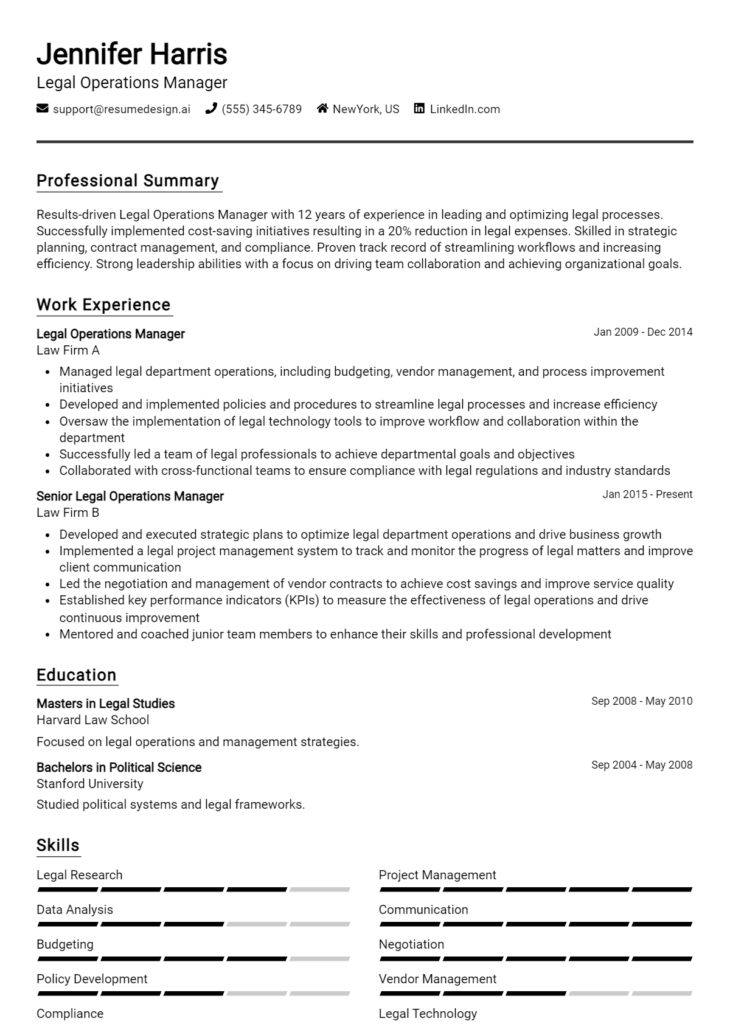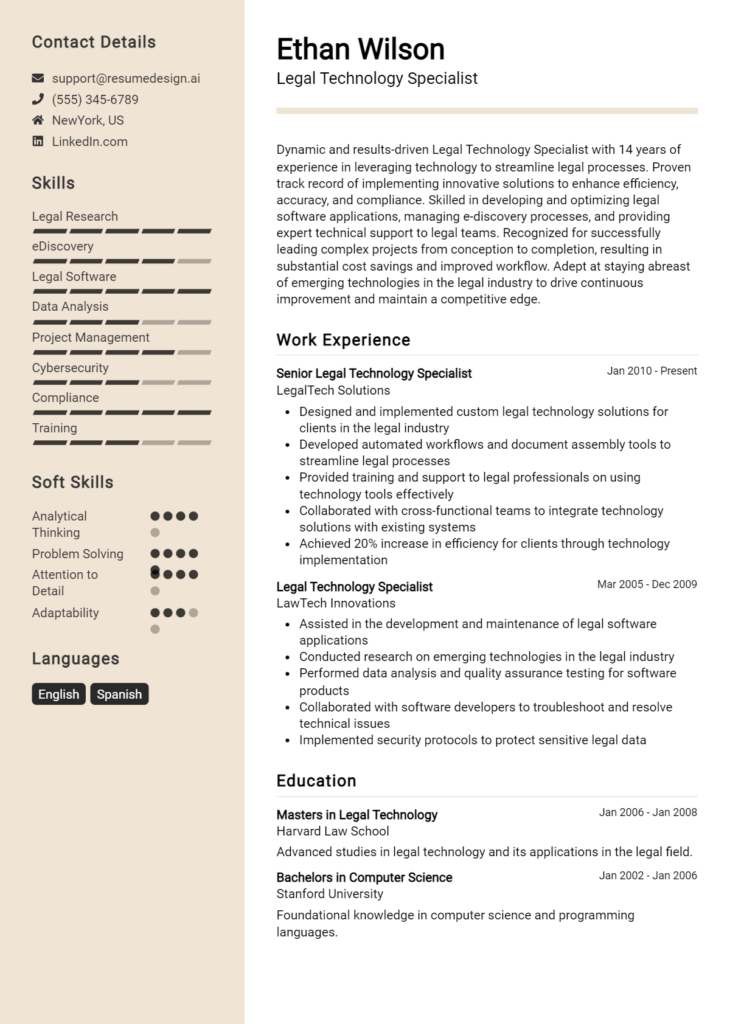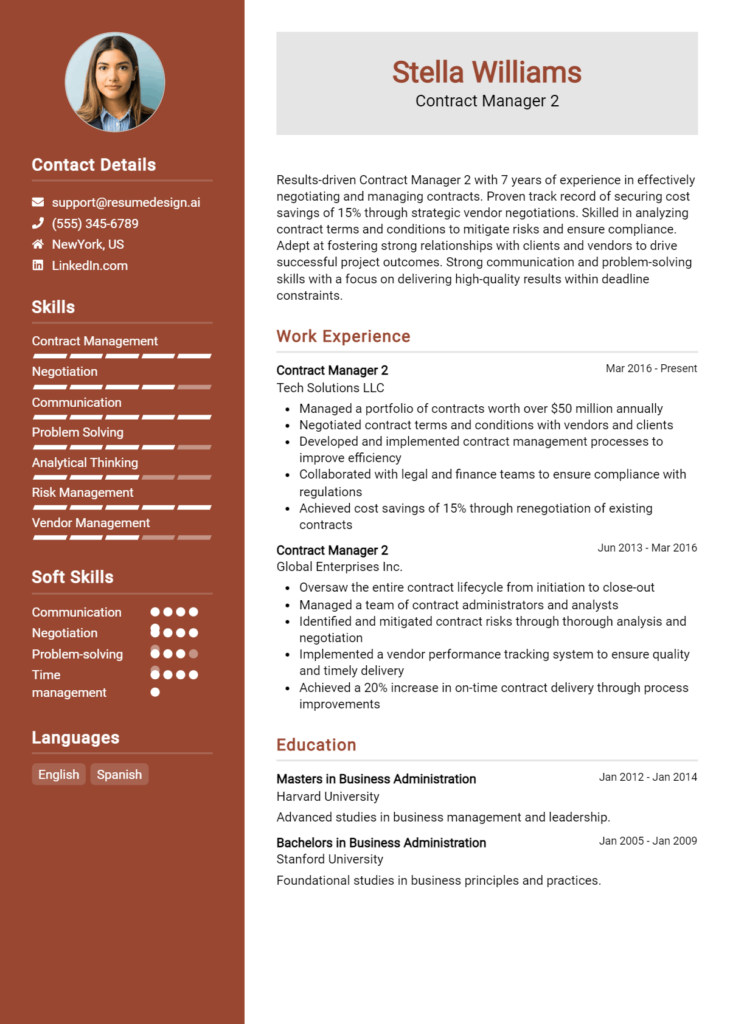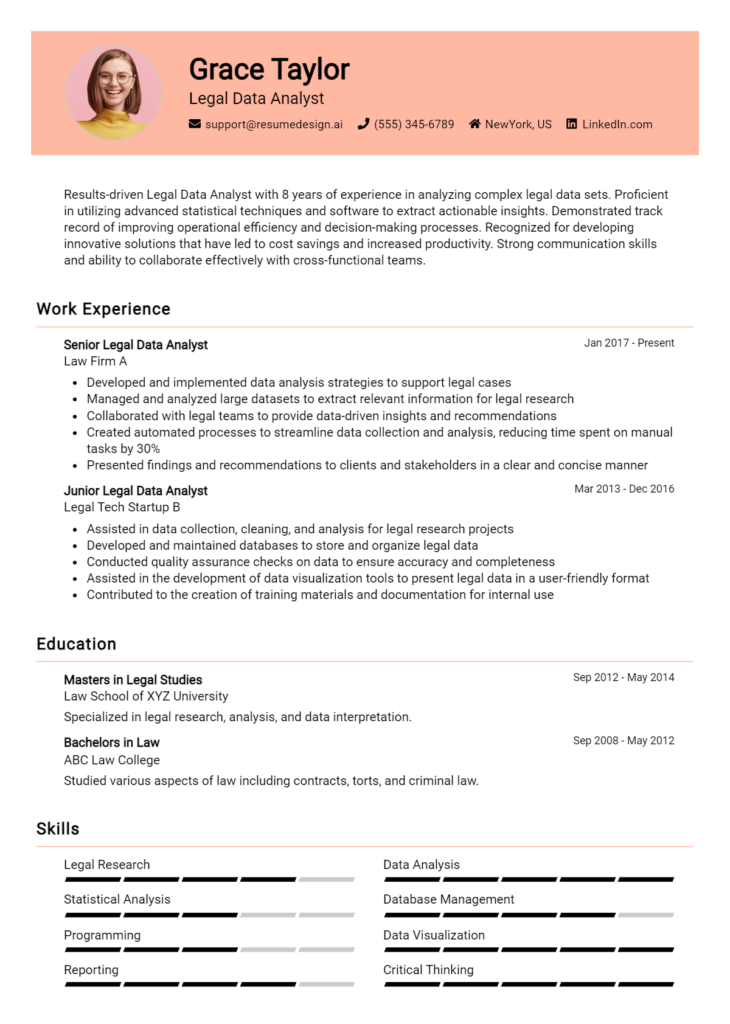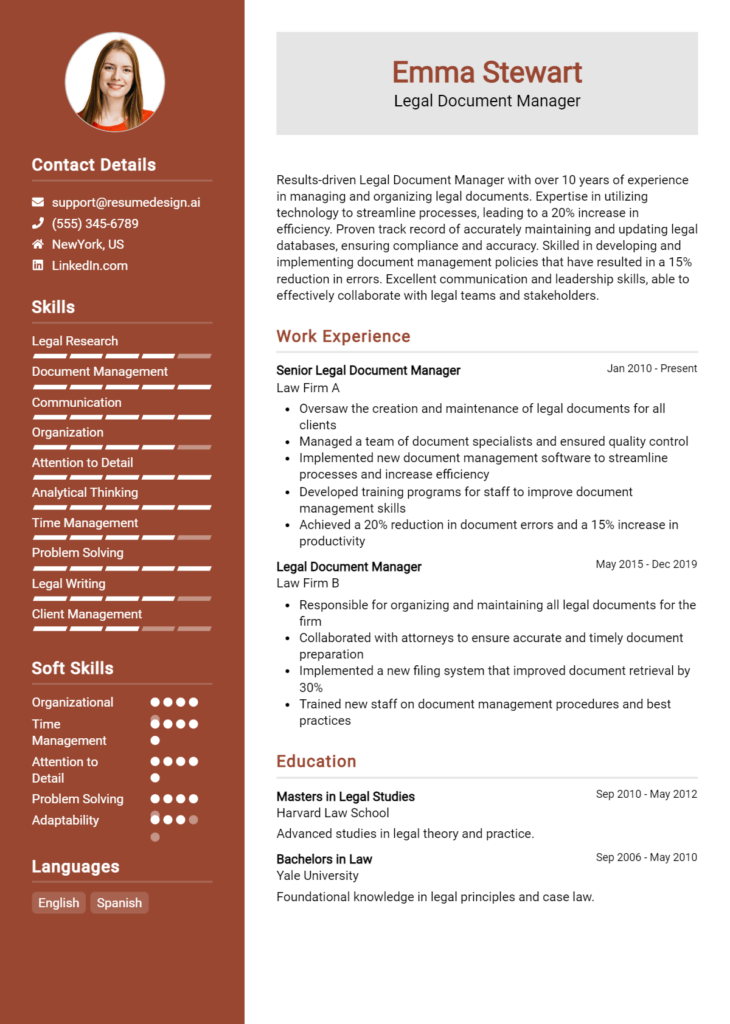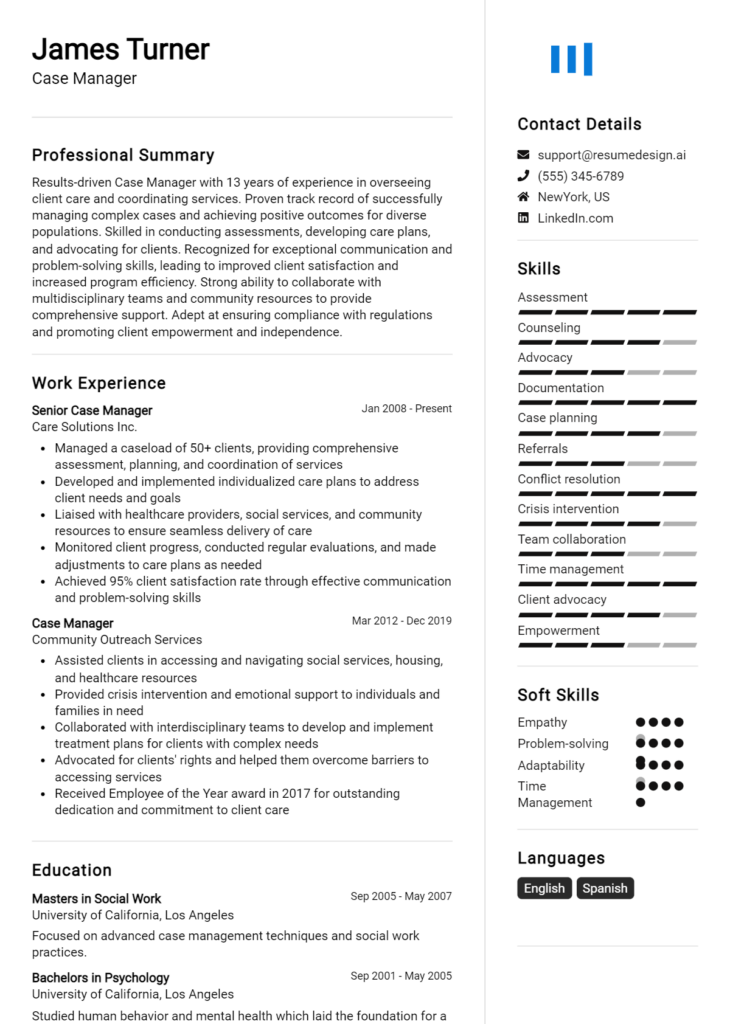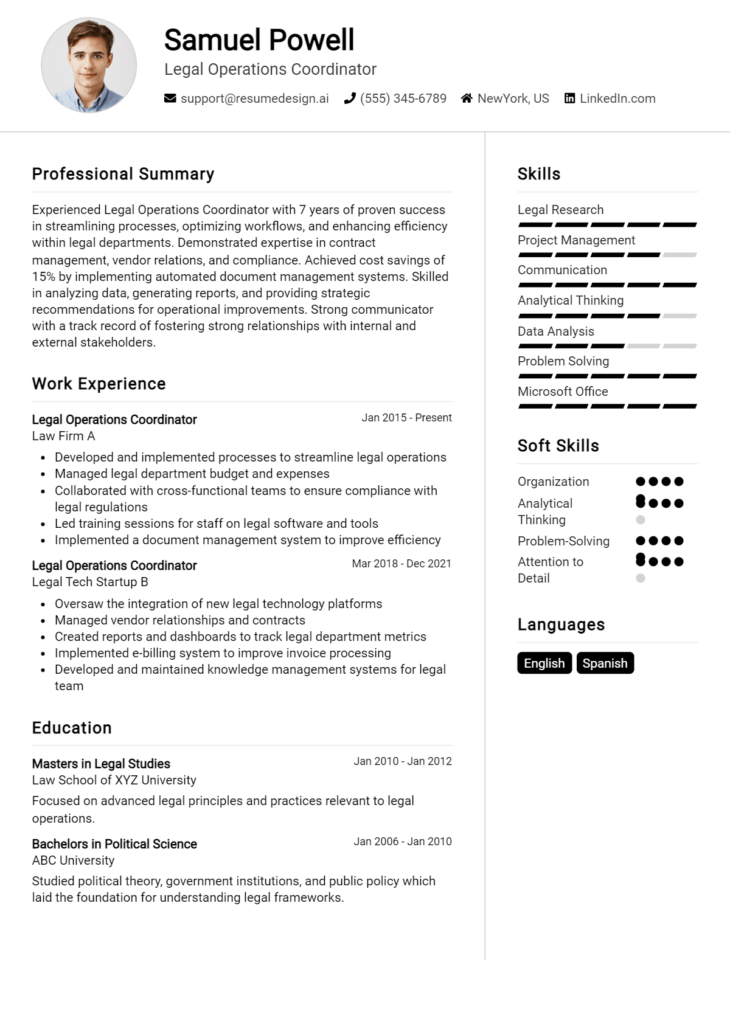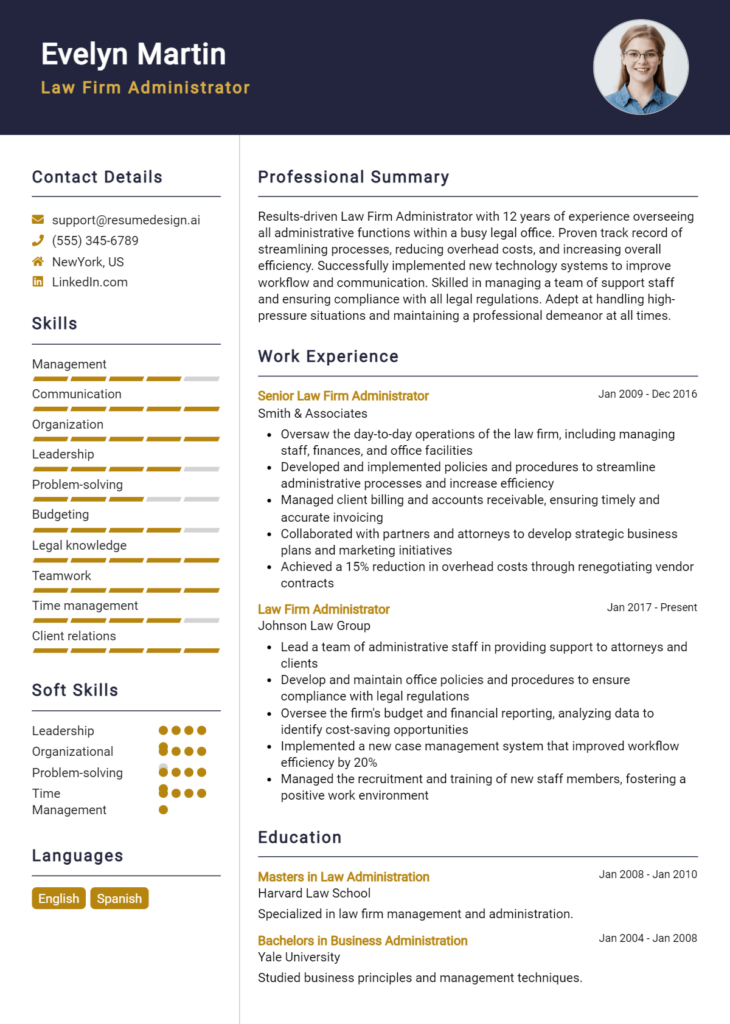E-discovery Project Manager Core Responsibilities
An E-discovery Project Manager plays a crucial role in facilitating collaboration between legal, IT, and compliance departments. This professional is responsible for overseeing the identification, collection, and analysis of electronic data for legal cases. Key skills include strong technical knowledge, operational efficiency, and exceptional problem-solving abilities. These competencies not only streamline the e-discovery process but also align with the organization’s broader objectives. A well-structured resume can effectively highlight these qualifications and demonstrate the candidate's value to prospective employers.
Common Responsibilities Listed on E-discovery Project Manager Resume
- Coordinate e-discovery projects from inception to completion.
- Manage cross-functional teams, including legal and IT staff.
- Develop and implement e-discovery strategies and workflows.
- Oversee data collection and processing in compliance with legal standards.
- Monitor project timelines and budgets to ensure efficiency.
- Conduct risk assessments and develop mitigation strategies.
- Facilitate communication between stakeholders and clients.
- Evaluate and select e-discovery tools and technologies.
- Train team members on e-discovery processes and best practices.
- Prepare detailed reports and documentation for legal proceedings.
- Stay updated on e-discovery trends and regulatory changes.
High-Level Resume Tips for E-discovery Project Manager Professionals
In the competitive landscape of E-discovery Project Management, a well-crafted resume serves as your first and often only shot at making a lasting impression on potential employers. Your resume acts as a powerful marketing tool, showcasing not only your skills and qualifications but also your unique achievements that set you apart from other candidates. As the industry evolves, so too must your resume, reflecting the latest trends and critical competencies in E-discovery. In this guide, we will provide practical and actionable resume tips specifically tailored for E-discovery Project Manager professionals, ensuring that your first impression is a memorable one.
Top Resume Tips for E-discovery Project Manager Professionals
- Tailor your resume to match the specific job description, using keywords and phrases that reflect the requirements and responsibilities outlined by the employer.
- Highlight relevant experience in E-discovery, including specific tools, technologies, and methodologies you have utilized in past projects.
- Quantify your achievements with metrics and data, such as the number of cases managed, percentage of cost savings achieved, or improvements in project timelines.
- Showcase your knowledge of industry regulations and compliance issues that are crucial in the E-discovery field.
- Include a section for technical skills that lists relevant software and tools, such as Relativity, Logikcull, or other E-discovery platforms.
- Demonstrate your project management capabilities by detailing the methodologies you are proficient in, such as Agile or Six Sigma.
- Incorporate certifications related to E-discovery or project management, such as the Certified E-Discovery Specialist (CEDS) or Project Management Professional (PMP).
- Utilize a clean, professional format that enhances readability and allows for easy navigation of your qualifications and experiences.
- Highlight your soft skills, such as communication, teamwork, and problem-solving, which are critical in managing diverse project teams and client relationships.
- Consider including a brief summary statement at the top of your resume that encapsulates your expertise and career goals in the E-discovery landscape.
By implementing these targeted tips, you can significantly enhance your chances of securing a position in the E-discovery Project Manager field. A polished and strategically crafted resume will not only capture the attention of hiring managers but also clearly convey your qualifications and readiness to tackle the challenges of this dynamic industry.
Why Resume Headlines & Titles are Important for E-discovery Project Manager
In the competitive field of e-discovery, a well-crafted resume headline or title is crucial for project managers looking to stand out. These concise phrases serve as the first impression of a candidate, summarizing their key qualifications and expertise in a manner that captures the attention of hiring managers. An effective headline should not only be relevant to the specific e-discovery role being applied for but also highlight the candidate's unique strengths and contributions. By distilling a wealth of information into a single impactful statement, a strong resume headline can set the tone for the rest of the application and encourage hiring managers to delve deeper into the candidate's experience.
Best Practices for Crafting Resume Headlines for E-discovery Project Manager
- Keep it concise: Aim for one to two lines that clearly convey your value.
- Be role-specific: Tailor the headline to reflect the e-discovery project management position.
- Highlight key skills: Include essential competencies relevant to e-discovery, such as data analysis or project coordination.
- Use impactful language: Choose strong action words that demonstrate leadership and expertise.
- Quantify achievements: If possible, incorporate metrics or outcomes to showcase your success.
- Avoid jargon: Ensure the language is accessible and understandable to a broad audience.
- Reflect your career level: Indicate whether you are an entry-level, mid-level, or senior professional.
- Stay relevant: Regularly update your headline to align with evolving industry standards and job requirements.
Example Resume Headlines for E-discovery Project Manager
Strong Resume Headlines
"Results-Driven E-discovery Project Manager with 10+ Years of Experience in Data Compliance and Risk Management"
“Expert E-discovery Project Leader Specializing in High-Stakes Litigation and Cross-Functional Team Management”
“Dynamic E-discovery Manager with Proven Track Record of Reducing Costs by 30% Through Process Optimization”
Weak Resume Headlines
“E-discovery Manager Looking for Opportunities”
“Professional with Experience in Various Fields”
The strong headlines are effective because they are specific, quantifiable, and tailored to the e-discovery project management role, immediately conveying the candidate's expertise and achievements. They highlight what sets the candidate apart in a clear and compelling manner. In contrast, the weak headlines fail to impress due to their vagueness and lack of focus; they do not provide any meaningful information about the candidate's qualifications or strengths, making it difficult for hiring managers to see the candidate's potential value to the organization.
Writing an Exceptional E-discovery Project Manager Resume Summary
A resume summary is a crucial component for an E-discovery Project Manager's CV, serving as the first impression for hiring managers. It succinctly encapsulates the candidate's key skills, relevant experience, and notable accomplishments, providing a snapshot of their qualifications. A strong summary not only grabs attention but also aligns the candidate’s background with the specific requirements of the job, making it easier for hiring managers to see the value they bring to the organization. It should be concise and impactful, tailored to the role being applied for, ensuring that it resonates with the reader and encourages them to delve deeper into the resume.
Best Practices for Writing a E-discovery Project Manager Resume Summary
- Quantify achievements to demonstrate impact, such as the number of cases managed or the percentage of successful outcomes.
- Focus on specific skills relevant to E-discovery, including knowledge of legal protocols, technology tools, and project management methodologies.
- Tailor the summary to the job description by using keywords and phrases that match the employer's requirements.
- Highlight relevant industry experience, showcasing familiarity with data privacy laws and compliance regulations.
- Use action verbs to convey a sense of initiative and leadership, such as "led," "managed," or "streamlined."
- Keep the summary concise—ideally 3-5 sentences—to maintain the reader's attention.
- Showcase problem-solving capabilities by mentioning specific challenges faced and how they were overcome.
- Reflect a results-oriented mindset by emphasizing how your efforts contributed to the overall success of projects.
Example E-discovery Project Manager Resume Summaries
Strong Resume Summaries
Results-driven E-discovery Project Manager with over 7 years of experience in managing complex litigation projects, achieving a 95% success rate in document review processes. Skilled in utilizing advanced e-discovery tools and fostering collaboration among cross-functional teams to streamline workflows and reduce costs by 30%.
Accomplished E-discovery Project Manager with a proven track record of overseeing projects with budgets exceeding $1 million. Expert in deploying innovative strategies that enhanced data retrieval efficiency by 40%, while ensuring compliance with industry regulations.
Detail-oriented E-discovery Project Manager who successfully led a team of 10 in the management of over 100 e-discovery cases, resulting in timely delivery and a client satisfaction rate of 98%. Proficient in leveraging technology to optimize data analysis and reduce processing time by 25%.
Weak Resume Summaries
Experienced project manager with a focus on e-discovery and related tasks. I have a lot of skills and know how to manage projects well.
E-discovery Project Manager with some experience in the field. I have worked on various projects and understand the basics of the job.
The strong resume summaries are effective because they provide specific achievements and quantifiable results, such as success rates and cost reductions, which demonstrate the candidate's capabilities directly related to the role. They also use relevant keywords and show a clear alignment with the responsibilities of an E-discovery Project Manager. In contrast, the weak summaries lack specificity and measurable achievements, making them less impactful and failing to distinguish the candidate from others in a competitive job market.
Work Experience Section for E-discovery Project Manager Resume
The work experience section of an E-discovery Project Manager resume is crucial as it serves as a testament to the candidate's technical skills, leadership capabilities, and the ability to deliver high-quality projects within the legal and compliance frameworks. This section not only highlights relevant past positions but also showcases the candidate's proficiency in managing e-discovery processes, coordinating teams, and achieving successful outcomes. To stand out, candidates should focus on quantifying their achievements and aligning their experiences with industry standards, thus demonstrating their value to potential employers.
Best Practices for E-discovery Project Manager Work Experience
- Highlight specific e-discovery tools and technologies used in previous roles.
- Quantify results, such as the number of cases managed or the percentage of cost savings achieved.
- Emphasize leadership roles in managing cross-functional teams and projects.
- Include examples of collaboration with legal teams, external vendors, or clients.
- Demonstrate compliance with industry standards and best practices.
- Showcase problem-solving skills by detailing how challenges were addressed.
- Utilize action verbs to convey accomplishments and responsibilities clearly.
- Tailor the experience to the specific job description to highlight relevant expertise.
Example Work Experiences for E-discovery Project Manager
Strong Experiences
- Managed a team of 15 in a high-stakes e-discovery project, reducing document review costs by 30% through strategic vendor negotiations and process optimization.
- Implemented a new e-discovery software that improved data retrieval processes, resulting in a 40% decrease in project turnaround time.
- Coordinated with legal and IT departments to oversee the e-discovery lifecycle for over 50 litigation cases, ensuring compliance with court deadlines and regulations.
- Trained and mentored junior project managers, enhancing team productivity and improving project delivery metrics by 25%.
Weak Experiences
- Worked on various projects related to e-discovery.
- Assisted in the management of some teams and tasks.
- Participated in e-discovery processes without specific outcomes or achievements.
- Helped implement software solutions but did not detail any results or improvements.
The examples provided illustrate the difference between strong and weak experiences. Strong experiences are specific, quantifiable, and demonstrate significant contributions to past projects, showcasing the candidate's technical leadership and collaborative skills. In contrast, weak experiences lack detail and measurable outcomes, making it difficult for potential employers to assess the candidate's true capabilities and impact in previous roles.
Education and Certifications Section for E-discovery Project Manager Resume
The education and certifications section of an E-discovery Project Manager resume is a crucial component that showcases the candidate's academic achievements, professional development, and commitment to staying current in a rapidly evolving field. This section not only highlights relevant degrees and industry-recognized certifications but also emphasizes the candidate's ongoing learning efforts through specialized training and coursework. By providing this information, candidates can significantly enhance their credibility, demonstrate their qualifications for the role, and align themselves with the expectations of potential employers in the e-discovery and legal sectors.
Best Practices for E-discovery Project Manager Education and Certifications
- Include only relevant degrees and certifications that pertain to e-discovery, project management, or legal studies.
- Detail your educational background, including specific coursework that directly relates to e-discovery processes and technologies.
- Highlight any advanced degrees (e.g., Master's in Information Technology, Juris Doctor) that can enhance your qualifications.
- List industry-recognized certifications, such as Certified E-Discovery Specialist (CEDS) or Project Management Professional (PMP).
- Incorporate any specialized training programs or workshops related to e-discovery tools, methodologies, or project management.
- Ensure that the section is organized chronologically or by relevance, making it easy for employers to assess your qualifications.
- Use clear, concise language to describe your educational achievements and certifications, avoiding jargon or overly technical terms.
- Regularly update this section to reflect new certifications or courses completed to demonstrate a commitment to continuous learning.
Example Education and Certifications for E-discovery Project Manager
Strong Examples
- M.S. in Information Technology Management, University of XYZ, 2022
- Certified E-Discovery Specialist (CEDS), Association of Certified E-Discovery Specialists, 2023
- Project Management Professional (PMP), Project Management Institute, 2022
- Coursework in Electronic Discovery and Digital Evidence, University of XYZ, 2021
Weak Examples
- B.A. in History, University of ABC, 2005
- Certification in Basic Computer Skills, Online Learning Center, 2020
- Diploma in Office Administration, Community College of DEF, 2010
- Coursework in Non-Profit Management, University of XYZ, 2019
The strong examples are considered effective because they directly align with the requirements and skills necessary for an E-discovery Project Manager, showcasing advanced degrees, relevant certifications, and specialized coursework. Conversely, the weak examples lack relevance to the e-discovery field, presenting outdated or unrelated qualifications that do not enhance the candidate’s suitability for the role.
Top Skills & Keywords for E-discovery Project Manager Resume
As an E-discovery Project Manager, possessing the right skills is crucial for successfully navigating the complexities of electronic discovery processes. A well-crafted resume must highlight both hard and soft skills to showcase your ability to manage projects effectively, collaborate with diverse teams, and ensure compliance with legal standards. By emphasizing these skills, you demonstrate not only your technical expertise but also your capacity for leadership and communication—qualities that are essential in this fast-paced and detail-oriented field. To improve your chances of landing a desirable position, it's important to align your resume with the skills that employers are actively seeking. For a deeper dive into the essential skills for your resume, keep reading.
Top Hard & Soft Skills for E-discovery Project Manager
Soft Skills
- Leadership
- Communication
- Problem-solving
- Attention to detail
- Time management
- Adaptability
- Team collaboration
- Negotiation
- Conflict resolution
- Critical thinking
Hard Skills
- Project management
- E-discovery software proficiency (e.g., Relativity, Logikcull)
- Data analysis and reporting
- Knowledge of legal regulations (e.g., GDPR, e-Discovery rules)
- Information governance
- Risk management
- Document review processes
- Technical writing
- Familiarity with databases
- Cybersecurity awareness
Incorporating these critical skills into your resume will not only enhance its appeal but also demonstrate your readiness to take on the challenges of an E-discovery Project Manager role. Additionally, showcasing relevant work experience will further solidify your qualifications in the eyes of potential employers.
Stand Out with a Winning E-discovery Project Manager Cover Letter
As a highly skilled E-discovery Project Manager with over five years of experience in overseeing complex litigation processes, I am eager to bring my expertise in project management and electronic discovery to your esteemed organization. My background in legal technology, combined with a strong understanding of data privacy laws and regulatory compliance, positions me uniquely to contribute to your team. I am particularly drawn to your firm’s commitment to innovation in legal services, and I believe my proactive approach to managing e-discovery projects aligns perfectly with your goals.
In my previous role at [Previous Company Name], I successfully led multiple e-discovery projects, coordinating efforts between legal teams, IT specialists, and external vendors to ensure timely and efficient data retrieval and analysis. My ability to implement best practices in e-discovery workflows not only improved project turnaround times by 30% but also significantly reduced costs. I am adept at utilizing cutting-edge e-discovery tools and technologies, which enables me to streamline processes and enhance productivity while maintaining the highest standards of accuracy and compliance.
Collaboration is at the heart of my project management philosophy. I pride myself on fostering strong relationships with stakeholders to ensure that all parties are aligned and informed throughout the project lifecycle. My excellent communication skills and attention to detail allow me to effectively manage expectations and navigate the complexities of e-discovery in a fast-paced environment. I am confident that my strategic mindset and ability to adapt to changing circumstances will make a positive impact on your organization.
I am excited about the opportunity to contribute my skills and experience to [Company Name] as an E-discovery Project Manager. I believe that my dedication to excellence and innovation in e-discovery management will support your firm’s objectives and enhance client satisfaction. I look forward to the possibility of discussing how I can further strengthen your team and contribute to your ongoing success. Thank you for considering my application.
Common Mistakes to Avoid in a E-discovery Project Manager Resume
When applying for a role as an E-discovery Project Manager, crafting a compelling resume is essential to stand out in a competitive field. However, many candidates make critical mistakes that can undermine their chances of landing the job. By recognizing and avoiding these common pitfalls, you can create a resume that effectively showcases your skills and experiences relevant to e-discovery management. Here are some common mistakes to watch out for:
Lack of Specificity: Using vague language and broad descriptions can make it difficult for hiring managers to understand your specific contributions. Clearly define your role and the impact you made in previous projects.
Ignoring Keywords: Failing to include industry-specific keywords can result in your resume being overlooked by Applicant Tracking Systems (ATS). Be sure to incorporate terms commonly used in e-discovery, such as “litigation support,” “data analysis,” and “information governance.”
Overloading with Jargon: While it's important to use industry terms, overloading your resume with jargon can alienate readers. Strike a balance by ensuring your language is clear and accessible without sacrificing specificity.
Neglecting Soft Skills: E-discovery roles often require strong interpersonal skills, such as communication and teamwork. Focusing solely on technical skills can give an incomplete picture of your capabilities as a project manager.
Formatting Issues: A cluttered or overly complex resume format can distract from the content. Ensure your resume is clean, well-organized, and easy to read, with consistent fonts and clear headings.
Failure to Quantify Achievements: Stating your achievements without quantifying them can leave hiring managers with questions. Use metrics and specific examples to demonstrate your success, such as “managed a team of X members” or “reduced project turnaround time by Y%.”
Not Tailoring Your Resume: Sending out a generic resume for every application can diminish your chances. Tailor your resume to highlight experiences and skills that are particularly relevant to each job description.
Omitting Continuing Education: The field of e-discovery is constantly evolving. Neglecting to include relevant certifications, training, or ongoing education may signal a lack of commitment to professional growth.
Conclusion
As an E-discovery Project Manager, your role is crucial in navigating the complexities of electronic discovery in legal proceedings. You are responsible for overseeing the collection, processing, and review of data while ensuring compliance with legal standards. Key skills include project management, knowledge of legal processes, and proficiency with E-discovery tools and software.
Additionally, effective communication is essential, as you will collaborate with legal teams, clients, and IT professionals to ensure the successful execution of E-discovery projects. Staying updated on industry trends and technologies will also enhance your ability to manage projects efficiently and effectively.
In conclusion, if you are looking to advance your career as an E-discovery Project Manager, now is the perfect time to review and refine your resume. Ensure that it accurately reflects your experience and skills in E-discovery. To assist you in this process, consider utilizing resources such as resume templates, a resume builder, resume examples, and cover letter templates. Take action today to enhance your job application materials and stand out in this competitive field!

